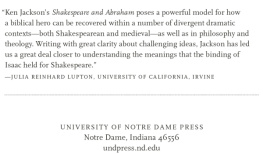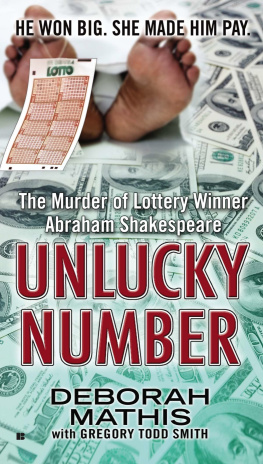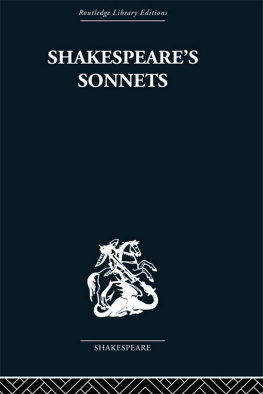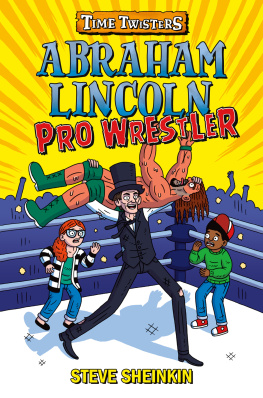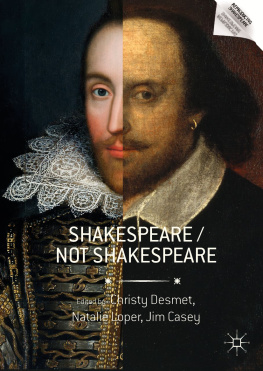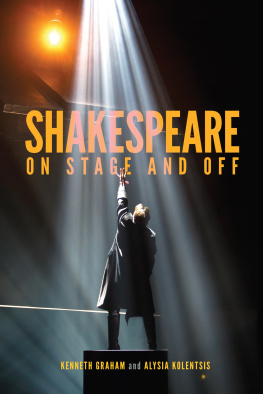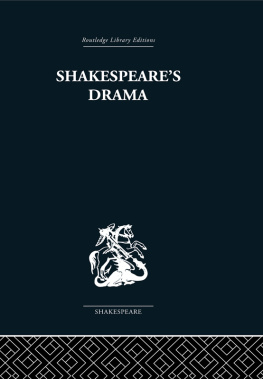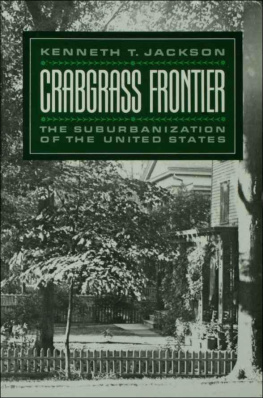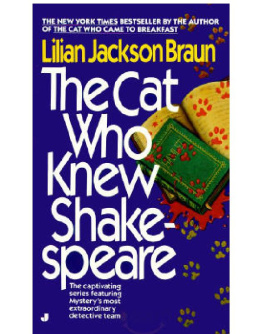Jackson Kenneth S. - Shakespeare and Abraham
Here you can read online Jackson Kenneth S. - Shakespeare and Abraham full text of the book (entire story) in english for free. Download pdf and epub, get meaning, cover and reviews about this ebook. City: Notre Dame, year: 2015, publisher: University of Notre Dame Press, genre: Religion. Description of the work, (preface) as well as reviews are available. Best literature library LitArk.com created for fans of good reading and offers a wide selection of genres:
Romance novel
Science fiction
Adventure
Detective
Science
History
Home and family
Prose
Art
Politics
Computer
Non-fiction
Religion
Business
Children
Humor
Choose a favorite category and find really read worthwhile books. Enjoy immersion in the world of imagination, feel the emotions of the characters or learn something new for yourself, make an fascinating discovery.
- Book:Shakespeare and Abraham
- Author:
- Publisher:University of Notre Dame Press
- Genre:
- Year:2015
- City:Notre Dame
- Rating:3 / 5
- Favourites:Add to favourites
- Your mark:
- 60
- 1
- 2
- 3
- 4
- 5
Shakespeare and Abraham: summary, description and annotation
We offer to read an annotation, description, summary or preface (depends on what the author of the book "Shakespeare and Abraham" wrote himself). If you haven't found the necessary information about the book — write in the comments, we will try to find it.
Shakespeare and Abraham — read online for free the complete book (whole text) full work
Below is the text of the book, divided by pages. System saving the place of the last page read, allows you to conveniently read the book "Shakespeare and Abraham" online for free, without having to search again every time where you left off. Put a bookmark, and you can go to the page where you finished reading at any time.
Font size:
Interval:
Bookmark:
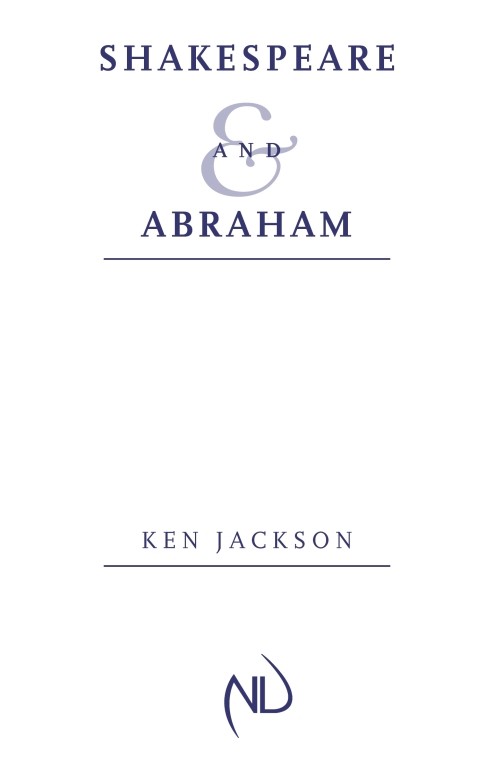
AND
ABRAHAM
KEN JACKSON
University of Notre Dame Press
Notre Dame, Indiana
Copyright 2015 by the University of Notre Dame
Notre Dame, Indiana 46556
undpress.nd.edu
All Rights Reserved
E-ISBN 978-0-268-08355-7
This e-Book was converted from the original source file by a third-party vendor. Readers who notice any formatting, textual, or readability issues are encouraged to contact the publisher at
For Pauline, Sophie, and Henry
This study began around 1996, when Suzanne Gossett told mein her inimitable tone and mannerWell, if you are going to write about Timon of Athens you will need to deal with Copplia Kahn! I did, reading and rereading a single article in Shakespeare Quarterly with this admonition ringing in my minds ear. I am grateful to have the clear guidance of such serious scholars who, through their own work and willingness to teach, cut paths to further inquiry. As I progressed, struggling with my own thoughts, I had the great luxury of almost always being able to turn to the work of Julia Reinhard Lupton to understand my own abstract musings. In academia, having someone else always arrive there first really isnt that bad as long as it is someone like Julia.
Timon of Athens eventually took me home, to Detroit, where we never stop talking about the Renaissance, and where Arthur F. Marotti has kept the very idea of the university alive for me at a time when the very term seems threatened. To paraphrase a dean at Professor Marottis retirement, many thought that without his gravitas the whole place might levitate off the ground and disappear. It hasnt, perhaps because he has been able to maintain his faculty office. Wayne State University has been generous in its support even though I could never work STEM in to the title of this book. Richard Grusin, Ellen Barton, and Michael Scrivener provided much needed direction and modelling, all of a different sort. Robert Aguirre reminded me I am never quite alone. And Jaime Goodrich and Simone Chess always prompted me to keep moving, lest I recede in to the past. My former graduate studentsLaura Estill, Renuka Gusain, and Michael Martinprovided more sheer joy, I am sure, than I ever provided my teachers. Having pushed like mad to get them out the door in a timely fashion, I now miss their company so much I got a Facebook page. Dean Ambika Mathur, late in the process, gave much needed support and confirmation that university sciences werent quite ready to jettison the humanities. Kay Stone and Cindy Sokol make my regular work day manageable and, at times, fun.
Outside WSU, I hope to see Jim Knapp, Gary Kuchar, and Ewan Fernie soon to tell them I owe them.
Some material here appeared in article form, and I want to acknowledge the following journals and publishers and thank them for their permission to reprint here. Parts of my final chapter appeared as One Wish or the Possibility of the Impossible: God, the Gift, and Derrida in Timon of Athens, Shakespeare Quarterly, 52.1 (Spring 2001): 3466; my discussion of King John emerges from Is It God or the Sovereign Exception? Giorgio Agamben and Shakespeares King John, Religion and Literature 38.3 (Autumn 2006): 8599; I first discussed Aaron the Moor in Here Aaron Is: Abraham and the Abrahamic in Titus Andronicus, 14531699, in Cultural Encounters Between East and West, ed. Matthew Dimmock and Matthew Birchwood (London: Cambridge Scholars Press, 2005), 14567; my chapter on The Merchant of Venice draws on Shylock, the Knight of Faith? The Journal for Cultural and Religious Theory 8.3, (Fall 2007), 6782; theoretical formulations were worked out in The Turn to Religion in Early Modern Studies, co-authored with Arthur F. Marotti, Criticism 46.1 (Winter 2004): 16790, and The Great Temptation of Religion: Why Badiou Has Been So Important to iek, The International Journal of iek Studies 1.2 (2007): 128.
At home, well, I have come to learn that there is nothing I wont sacrifice for my family, and for me that brings heaven and earth closer together.
Shakespeare probably read Genesis 22 in the Geneva Bible (1560). I present the text of verses 119 here with modernized spelling and typography.
And after these things God did prove Abraham, and said unto him, Abraham. Who answered Here am I.
And he said, Take now thine only son Isaac whom thou lovest, and get thee unto the land of Moriah, and offer him there for a burnt offering upon one of the mountains, which I will show thee.
Then Abraham rose up early in the morning and saddled his ass, and took two of his servants with him, and Isaac his son, and clove wood for the burnt offering and rose up and went to the place, which God had told him.
Then the third day Abraham lift[ed] up his eyes, and saw the place a far off.
And said unto his servants, Abide you here with the ass: for I and the child will go yonder and worship, and come again unto you.
Then Abraham took the wood of the burnt offering, and laid it upon Isaac his son, and he took the fire in his hand, and the knife: and they went both together.
Then spoke Isaac unto Abraham his father, and said, My father. And he answered, Here am I, my son. And he said, Behold the fire and the wood, but where is lamb for the burnt offering?
Then Abraham answered, My son, God will provide him a lamb for a burnt offering: so they went both together.
When they came to the place which God had showed him, Abraham built an altar there, and coached the wood, and bound Isaac his son, and laid him on the altar upon the wood.
And Abraham stretching forth his hand, took the knife to kill his son.
But the Angel of the Lord called unto him from heaven, saying Abraham, Abraham. And he answered, Here am I.
Then he said, Lay not thine hand upon the child, neither do anything unto him: for now I know that thou fear God, seeing for my sake thou has not spared thine only son.
And Abraham lifting up his eyes, looked and behold, there was a ram behind him caught by the horns in a bush. Then Abraham went and took the ram, and offered him up for a burnt offering in the stead of his son.
And Abraham called the name of that place Jehovah: as it is said this day, In the mount will the Lord be seen.
And the Angel of the Lord cried unto Abraham from heaven a second time.
And said, By my self have I sworn (faith the Lord) because thou has done this thing, and have not spared thine only son,
Therefore I will surely bless thee, and will greatly multiply thy seed, as the stars of the heaven, and as the sand which is upon the seashore, and thy seed shall possess the gate of his enemies.
And in thy seed shall all the nations of the earth be blessed, because thou has obeyed my voice.
Then turned Abraham again unto his servants, and they rose up, and went together to Beersheba: and Abraham dwelt at Beersheba.
This study seeks to illuminate Shakespeares dramatic fascination with Abrahams near sacrifice of his son Isaac in Genesis 22. Scenes of child killing or near child killing fill Shakespeares early plays, but, remarkably, no one has yet considered this in full. Genesis 22, I will show, informed Cliffords attack on young Rutland in 3 Henry VI and Henrys political sacrifice of his son Edward, which opens the play; Huberts providentially thwarted murder of Arthur in King John; Aaron the Moors surprising decision to spare his son amid the filial slaughters of
Font size:
Interval:
Bookmark:
Similar books «Shakespeare and Abraham»
Look at similar books to Shakespeare and Abraham. We have selected literature similar in name and meaning in the hope of providing readers with more options to find new, interesting, not yet read works.
Discussion, reviews of the book Shakespeare and Abraham and just readers' own opinions. Leave your comments, write what you think about the work, its meaning or the main characters. Specify what exactly you liked and what you didn't like, and why you think so.

